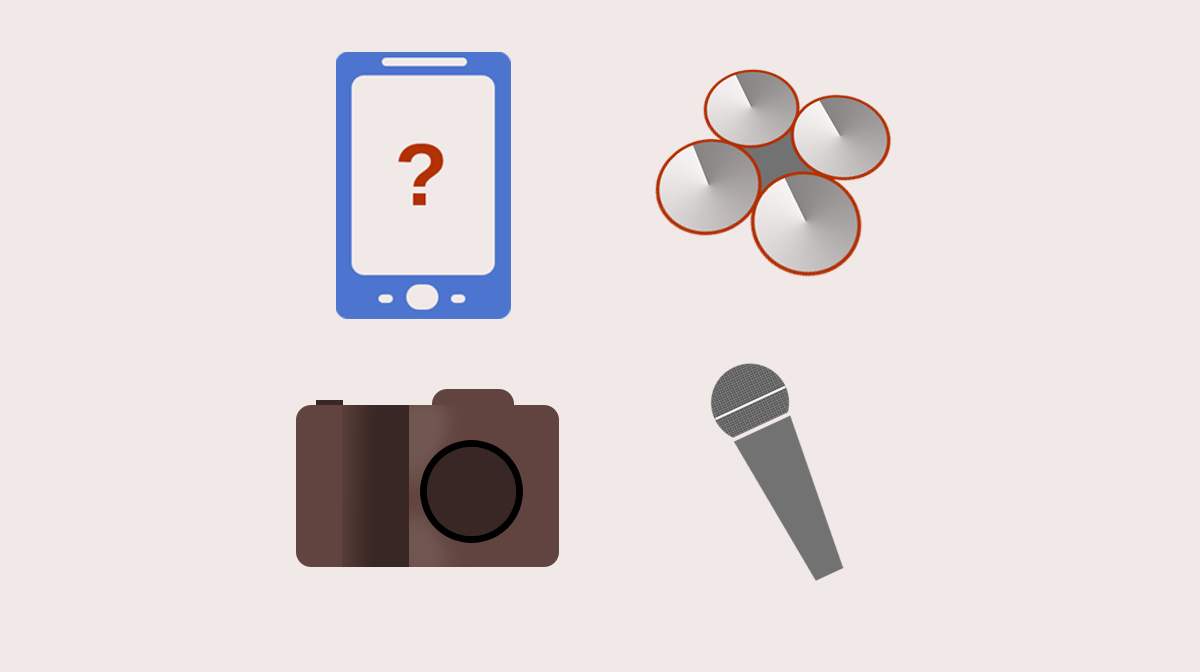Note: This article applies to Chicago only and should not be interpreted as legal advice.
In the modern age most of us have become accustomed to there being cameras everywhere. We carry the means to make video and audio recordings in our pockets and purses. We expect people to have home security systems installed and consider CCTV in public areas of apartment buildings to be a good thing. However, when an occupied apartment goes on the market the lines between what is a public or private space get blurred.
It's quite normal for apartment hunters to want to take photos of each place they see so that they can remember it later or share it with absent roommates. But given eavesdropping laws and the modern culture of suspicion regarding surveillance and privacy it's worth giving some thought to what is and isn't legal when it comes to cameras, audio recordings and showings. Today we'll cover the basics for the Chicago area.
The official Illinois law states that you must have permission to record conversations if other parties have a "reasonable expectation of privacy." It doesn't define what is reasonable, leaving the responsibility of defining the boundaries to the court system on a case by case basis.
There is no clear cut rule as to whether homes for sale or rent are considered public or private areas.
No one can videotape you in an area where you are supposed to be naked on a regular basis.
There's no specific rulings as to whether or not a landlord can make an audio or video recording of you while you tour their property outside of bathrooms, and there's no specific rulings as to whether or not they have to alert you that you are being recorded. It's best to assume that you are being recorded at every showing and only discuss your thoughts about a property after you're well out of earshot.
Similarly there's no specific ruling about making an audio or video recording of your interactions with a landlord. To be on the safe side always ask first.
Illinois eavesdropping law also prohibits forwarding emails without permission of the sender when the sender has a reasonable expectation of privacy. This law includes all private electronic communication, so Twitter DMs and Facebook messages are included.
Chicago's drone laws prohibit flying drones over someone else's property without permission, and also prohibit drone flight over 400 ft or within 5 miles of an airport. This mean that for most apartment hunters taking drone photos of apartments you view will not be possible.
As a tenant you cannot control whether or not a landlord takes photos of your apartment while you are living there. You can, however, control what is visible to the camera by covering and/or hiding personal items. Like all situations where a landlord enters your apartment, they must give you two days notice.
There are similarly no restrictions on whether or not you as an apartment seeker can take photos of an occupied apartment. It's best to get permission from the current tenant and the landlord though, and make sure to delete all photos once you're done with your apartment search.
Law enforcement officers need housing too. It's always best to hide or remove any illegal items, be it drugs or stolen street signs, once your apartment goes on the market. However, if a police officer is in your apartment as a prospective tenant, they do not need a warrant to enter. They cannot take action on what they observe within your apartment without a warrant, nor can they go rummaging through your drawers. They will, however, probably need to see how large your closet is and whether or not the appliances & kitchen cabinets are clean and in good condition.
Your landlord cannot install cameras or audio recorders that record you while you are living in your apartment without your permission. You also cannot install cameras to record your roommates without their permission.
If your apartment is on the market and you wish to record anything that happens during showings, the same rules apply to you as to your landlord. It's best to prominently post signs saying "you are on camera" but it isn't specifically required by law.
The rules for surveillance in apartment hunting will only become more specific when the a case or several make it through the court system to get an official ruling. Illinois eavesdropping laws in their current form are only two years old and Chicago's drone law is only a year old, so there hasn't been much time to test and define what's reasonable and legal. If you believe your right to privacy has been compromised by the use of cameras or audio recorders it's best to run your specific situation past an attorney that specializes in such matters, or to contact the ACLU.
RentConfident is a Chicago startup that provides renters with the in-depth information they need to choose safe apartments. Help us reach more renters! Like, Share and Retweet us!


